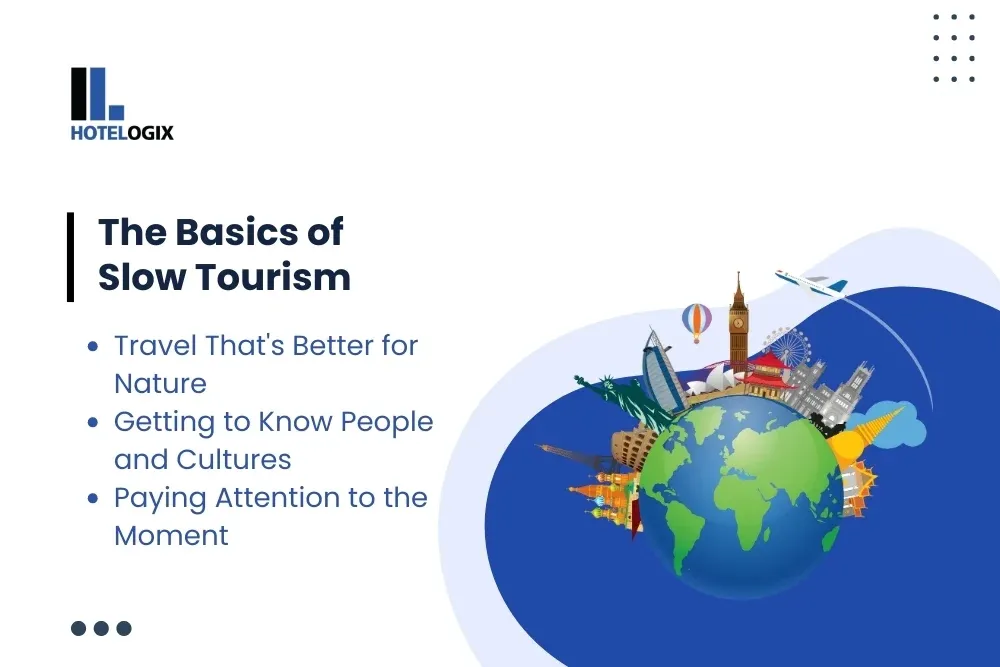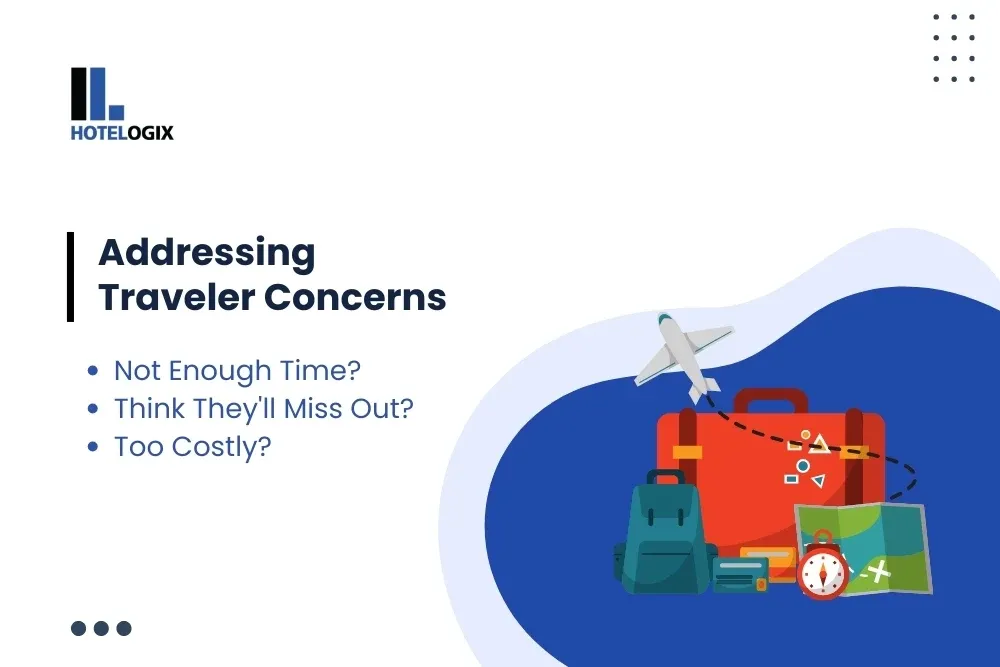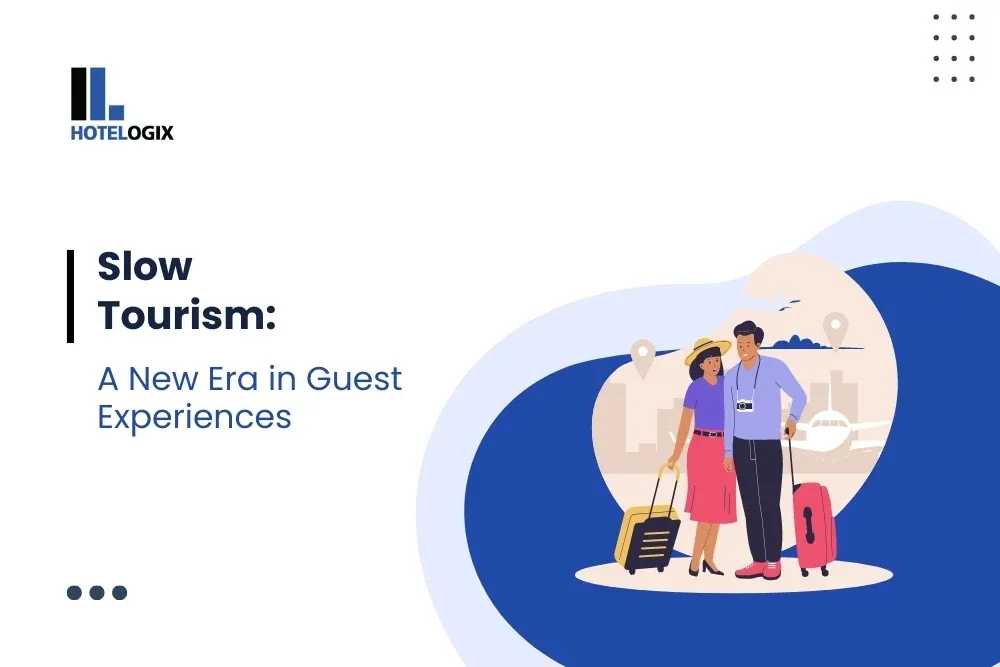We understand that travel is more than just moving from one destination to another—it's about creating experiences that resonate with guests on a deeper, emotional level. The growing trend of slow tourism offers a refreshing alternative to the fast-paced, overscheduled vacations many travelers have been experiencing. This philosophy aligns perfectly with the hospitality industry's goal of fostering meaningful guest experiences—ones that go beyond a hotel stay to inspire connection, rest, and rejuvenation.
Slow Tourism: A New Era in Guest Experiences
1. Understanding Slow Tourism
What It Means and Where It Came From
The concept of slow tourism, much like the slow food movement that began in Italy, encourages travelers to savor the journey rather than rushing through it. It promotes spending more time in fewer places, diving deep into local culture, and forming genuine connections with the destination. For hoteliers, this means shifting from offering "quick stays" to creating opportunities that encourage guests to linger, explore, and engage more fully.
Why People Like It
Slow tourism resonates because it creates a richer, more memorable travel experience. According to Expedia's Unpack '25 travel trends report, 62% of travelers felt that slow-travel-style trips reduced stress and anxiety, and nearly half said they made them reconnect better with loved ones. This insight aligns with a growing body of industry report findings that highlight travelers' desire for deeper, more restorative experiences. Imagine your guests returning after a day of exploring hidden gems, attending a local cooking class, or sharing stories with the people they meet. These experiences foster loyalty as guests associate your property with the heartwarming, authentic moments they've had during their stay.
2. The Basics of Slow Tourism

Travel That's Better for Nature
Sustainability is at the forefront of today's traveler preferences. Slow tourism aligns perfectly with eco-conscious travel by emphasizing reduced environmental impact. Hoteliers can support this by offering eco-friendly accommodations, promoting local transport options like bicycles, and reducing single-use plastics on-site. These practices not only appeal to the modern traveler but also position your establishment as a responsible, forward-thinking brand.
Getting to Know People and Cultures
Hospitality is, at its core, about facilitating connections. Slow tourism encourages guests to go beyond surface-level experiences by fostering interaction with local people and traditions. As hoteliers, you can integrate cultural elements into your offerings, such as hosting community events, arranging guided cultural tours, or partnering with local artisans to showcase their crafts.
Paying Attention to the Moment
Travelers today are seeking a break from the constant hustle of their daily lives. Slow tourism emphasizes mindfulness—being present in the moment. The Hilton Trends Report states that "more than one in five travelers plan to get away for self-discovery or mental health when travelling for leisure. They are leaning into 'soft travel,' or travel that encourages simplicity or spontaneity." Hoteliers can enhance this by offering tranquil spaces, wellness packages, or curated activities like yoga or nature walks, encouraging guests to pause, reflect, and truly embrace their surroundings.
3. Why Slow Tourism Feels Good
Better Experiences
Slow travel allows guests to build deeper connections with a destination. For hoteliers, this translates to offering experiences that are immersive and personal, such as farm-to-table dining, storytelling sessions, or curated itineraries focused on local highlights rather than overhyped tourist spots. These personalized touches create lasting impressions.
Helping Local People
Slow tourism emphasizes supporting local economies. Hoteliers can play a pivotal role by sourcing ingredients from nearby farms, collaborating with local tour operators, and showcasing regional culture within their properties. This not only enriches the guest experience but also strengthens ties with the community—a win-win for everyone.
Good for Guests Too
Today's travelers are seeking wellness-focused experiences, and slow tourism provides the perfect antidote to the stresses of modern life. A global survey by Ipsos found 62% of people reporting the impacts of stress on their daily lives, while in the UK, almost 80% said mental and physical health were equally important. Hoteliers can highlight the health benefits of slow travel—better sleep, nourishing meals, and reduced anxiety—by incorporating wellness-focused amenities like spas, organic dining options, and serene outdoor spaces.
4. How Hoteliers Can Support Slow Tourism
Encourage Longer Stays
Promote packages that incentivize extended visits, such as discounted rates for week-long stays or curated "slow travel" itineraries. Highlight the benefits of spending more time exploring the local area and enjoying the comfort of your property. This aligns with the growing trend of travelers seeking more value from their trips and wanting to see as much as possible while they're away.
Promote Sustainable Travel Options
Help guests embrace eco-friendly travel by offering bike rentals, electric car charging stations, or partnerships with local guides who prioritize sustainability. These initiatives add value to the guest experience and align with their desire for environmentally responsible travel.
Offer Unique Local Experiences
Collaborate with local businesses to provide one-of-a-kind activities like cooking classes, wine tastings, or cultural workshops. These immersive experiences allow guests to connect with the destination's soul, leaving them with stories to share and memories to cherish.
Focus on Local Cuisine
Food has the power to connect people to a place. Hoteliers can celebrate local flavors by incorporating regional dishes into their menus, hosting farm-to-table dinners, or offering cooking demonstrations led by local chefs. Encourage guests to savor every bite and learn the story behind each ingredient.
Use Smart Technology to Enhance Guest Experiences
Hotelogix also enables seamless booking management and mobile access, allowing hoteliers to respond to guest needs in real-time, which enhances the relaxed, thoughtful service that slow travelers appreciate.
5. Places That Work Well for Slow Travel
Hospitality-Driven Destinations
As a hotelier, it's essential to know the destinations that epitomize slow tourism. These are places where guests can immerse themselves in local life and find the peace they seek. Some emerging destinations for slow tourism include:
- Tuscany, Italy – Famous for its charming countryside, slow food culture, and warm hospitality.
- Ubud, Bali – A haven for art lovers, wellness enthusiasts, and those seeking a deeper spiritual connection.
- Kyoto, Japan – Renowned for its timeless traditions, serene temples, and tea ceremonies.
- Bhutan – A pioneer in sustainable tourism, offering meaningful cultural experiences and untouched nature.
- Scottish Highlands – Perfect for guests who love nature, storytelling, and cozy evenings in village pubs.
Additionally, lesser-known wine regions are gaining popularity among slow travelers. Places like Brda in Slovenia, Kakheti in Georgia, and emerging wine regions in Albania and North Macedonia are attracting oenophiles looking for unique, less crowded experiences.
6. Addressing Traveler Concerns

Not Enough Time?
Even a short trip can embrace the slow travel philosophy. Hoteliers can promote weekend packages that focus on relaxation and immersion, such as spa retreats or local food tastings.
Think They'll Miss Out?
Encourage guests to focus on quality over quantity. Highlight the unique, off-the-beaten-path experiences they'll gain by slowing down, such as connecting with locals or savoring a quiet sunset.
Too Costly?
Longer stays often mean fewer transport expenses and discounted accommodations. Hoteliers can position slow travel as a cost-effective way to enjoy a richer travel experience while offering attractive long-stay deals.
Conclusion
As hoteliers, embracing slow tourism isn't just about adapting to a trend—it's about aligning with the values of today's travelers. It's about creating spaces where guests can slow down, forge connections, and leave with memories that last a lifetime.
The U.S. Travel Winter 2025 Forecast projects that total U.S. Travel spending will grow 3.9% to $1.35 trillion in 2025, with additional growth to $1.46 trillion (inflation-adjusted) by 2028. This growth presents a significant opportunity for hoteliers to tap into the slow tourism market and create unique, memorable experiences for their guests.
Slow travel is more than a journey; it's a mindset. By supporting this philosophy, you can offer your guests not just a stay, but a transformative experience that touches their hearts and keeps them returning for more.
So, encourage your guests to journey slowly, travel deep, and live more—because hospitality is not just about offering a room; it's about offering a story.


